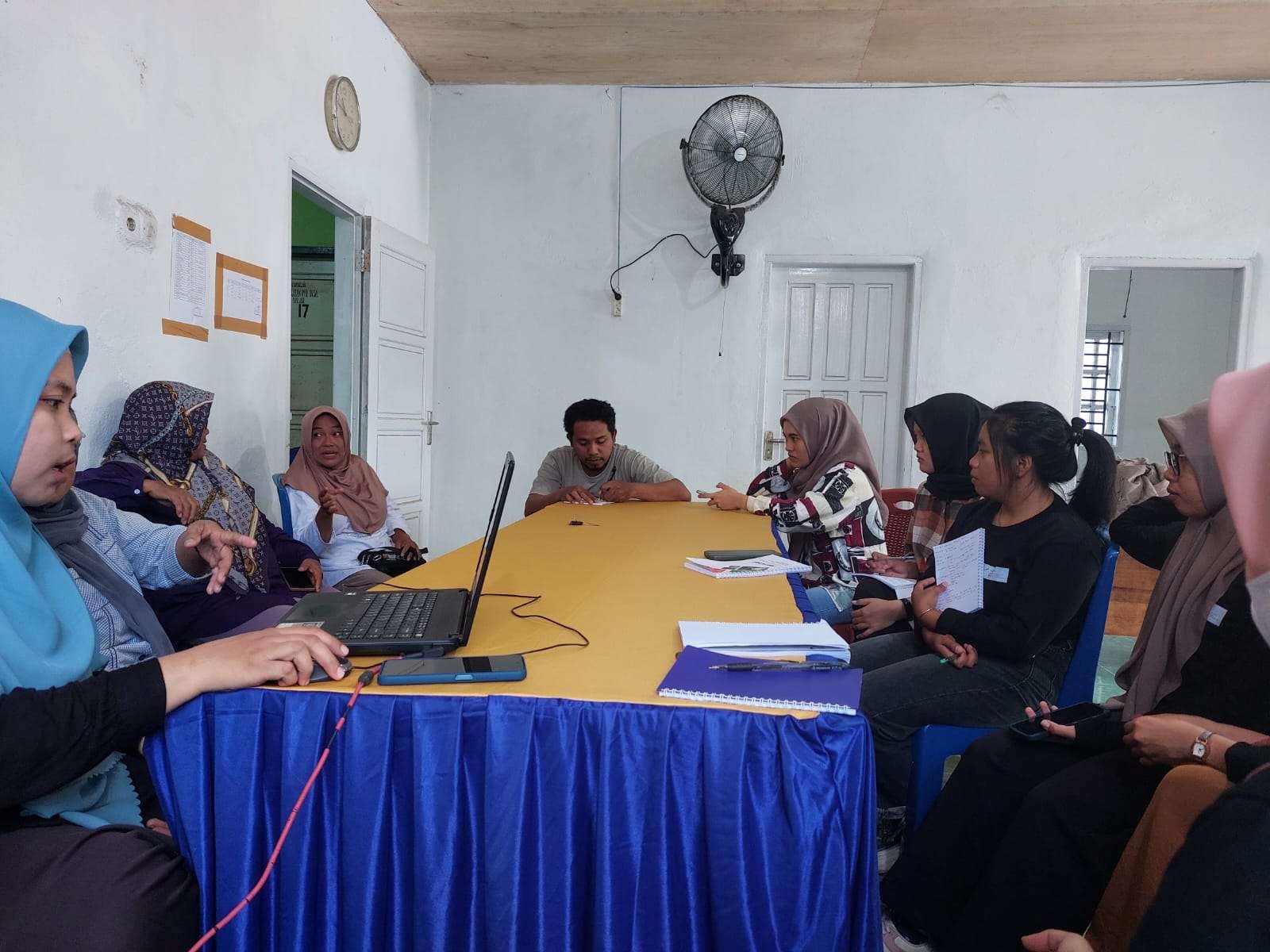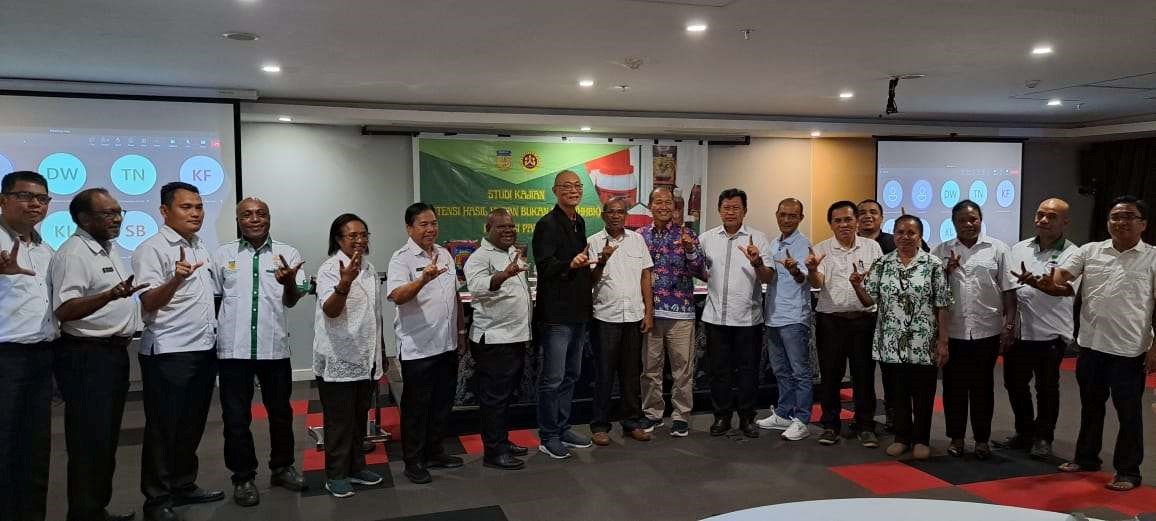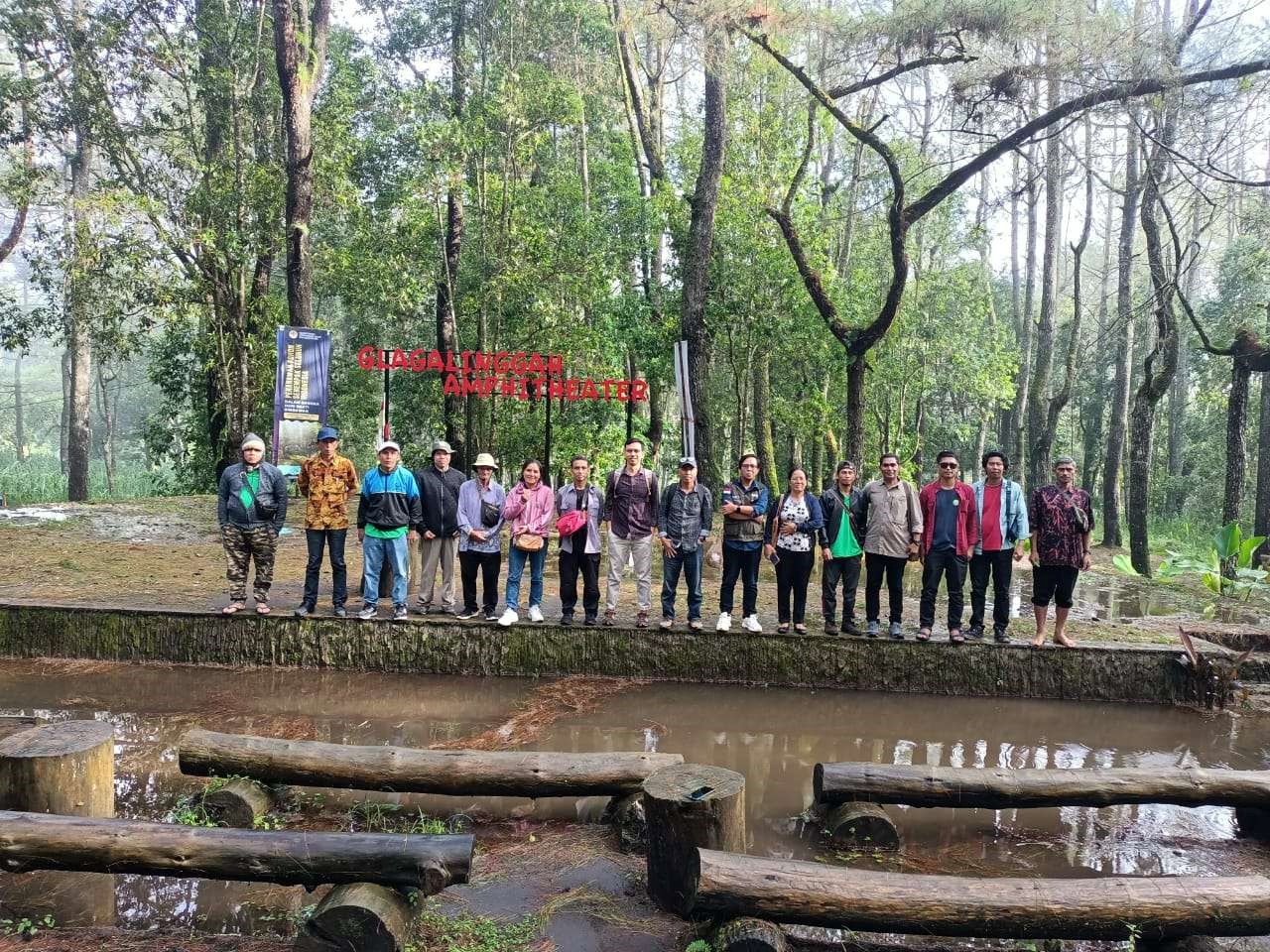FORCLIME
Forests and Climate Change ProgrammeTechnical Cooperation (TC Module)

Select your language

In an effort to support the implementation of the national movement on the Climate Village Programme (ProKlim), FORCLIME is supporting the Sigi Regency Environmental Service in its implementation of this programme. ProKlim is a national programme launched by the Ministry of Environment and Forestry (KLHK). This programme is intended to encourage climate-change adaptation and mitigation efforts at the grassroots level. KLHK is targeting the formation of 20,000 climate villages (ProKlim) by the end of 2024.
Sigi Regency is one of the regencies included in the Lore Lindu Biosphere Reserve (CBLL). In order to support the strengthening of the CBLL buffer zone, FORCLIME is facilitating the Sigi Regency Environmental Service in the conducting of assessments of villages to be proposed as future ProKlim Villages. The ProKlim assessments are being aimed at villages that have implemented climate action over the last two years and that are deemed to have responsible groups. One of these proposed villages is Baliase, and the Environmental Service conducted an assessment of activities related to climate action in Baliase Village on 19 March 2024. Baliase Village is one of 15 villages that underwent a phase I assessment in order to be proposed to receive the 2024 ProKlim Award.
Baliase Village has implemented various climate-related activities, including:
- Control of drought, flooding and landslides through irrigation, wells, reservoirs and water reservoirs.
- Prevention and control of diseases through the implementation of 3M (draining, filling, covering), the management of fish in community ponds and the implementation of PHBS (Clean and Healthy Living Behavior).
- Increasing of vegetation cover through reforestation activities that involve the planting of trees in every yard.
The Sigi Regency Environmental Service will now process the proposed designation of Baliase Village as a ProKlim Village in accordance with Regulation of the Directorate-General of Climate Change Control P4./2021 on Guidelines for the Implementation of the Climate Village Programme.
For more information, please contact:
Muhammad Yusuf, Advisor for Social Forestry and Sustainable Forest Management
Ismet Khaeruddin, Senior Adviser for Biodiversity Conservation and Provincial Coordinator for Central Sulawesi

In an effort to identify and inventory the potentials of the various non-timber forest products (NTFPs) that are produced within Papua Province, the Papua Forestry and Environment Service (DKLH), facilitated and supported by FORCLIME, recently completed a Study on the Potential of Non-Timber Forest Products in Papua Province. This study was conducted over a six-month period (July - December 2023) and utilized literary study methods, observations, FGDs and interviews that were conducted in study areas that included the Jayapura City Production Forest Management Unit (KPHP), KPHP Sarmi, KPHP Keerom, KPHP Lintas Sarmi Mamberamo Raya, Biak Numfor Protected Forest Management Unit (KPHL), KPHP Yapen, KPHP Waropen, Jayapura Regency Forestry and Environment Service Branch (CDKLH), Sarmi CDKLH, Keerom CDKLH and Mamberamo Raya CDKLH. The study was organized by the Papua Provincial Forestry and Environment Service and the University of Papua.
The results of the study were presented at a workshop that was held in Jayapura City, Papua Province on 13 March 2024. This event, which was organized both offline and online, was opened by the Secretary of the Papua Province Forestry and Environment Service, Mr. Aries Toteles Ap, SH, S.Hut, MSi. Present at the workshop, in addition to representatives from the relevant management units/study locations, were representatives from the University of Papua, NGOs (Samdhana and Econusa) and the Indonesian and German technical cooperation programme, FORCLIME. The aim of the workshop was to solicit input from participants in order to improve future study results.
As a result of this study, Papua Province now possesses data and information on the potential of non-timber forest products, including associated mapping. However, in the future it will also be necessary to analyze policies and strategies relating to the development of non-timber forest products within Papua Province.
For more information, please contact:
Anna Manyakori, Advisor for Sustainable Forest Management and Coordinator for Papua Province
Mohammad Sidiq, Strategic Area Manager for Sustainable Forest Management and Coordinator for Tanah Papua

In an effort to help strengthen institutions and increase capacities for the management of customary law communities (MHAs) in Topo Moma Toro, Topo Uma Moa and Ngata Katuvua To Lindu, which are all located around the Lore Lindu National Park, FORCLIME, working in conjunction with partners in Central Sulawesi, including the Lore Lindu National Park Office, the Central Sulawesi Customary Territory Registration Agency (BRWA) and the Karsa Institute, a non-governmental organization engaged in community empowerment, including the strengthening of the people's economy, conducted a study visit to the Alas Kedaton Customary Forest and the Bukit Pohen Forest Farmer Group (KTH) in Tabanan, as well as the Penglipuran Customary Village and the Glagah Linggah KTH in Bangli, Bali Province. The study visit was conducted on 12 – 17 March 2024 and was attended by 12 people representing the MHAs of Topo Moma Toro, Topo Uma Moa, Suaka Katuvua To Lindu, as well as the Karsa Institute, BRWA Central Sulawesi, the Lore Lindu National Park and GIZ. The delegation was well received by the Head of the Development, Utilization, Protection of Forests and Conservation of Natural Resources Division of the Bali Provincial Forestry and Environment Service, Mr. Hesti Sagiri, S.Hut.
Why Bali? From the results of discussions between the parties, it was recognized that the managements of customary forests in Bali have similar outlooks to the MHA in Central Sulawesi. Indeed, there is a cultural conformity between the communities that combines the government with its customary communities, both in terms of uniting government regulations with customary regulations and the division of roles between village heads and the heads of the customary institutions operating within villages. Bali is known as an area that has a strong culture and traditions, and these feature prominently as a part of daily life. Moreover, customary forest management in Bali is based on local wisdom that plays an important role in protecting and preserving biodiversity. These elements were all considerations that were taken into account when deciding the location in which this study visit was to be held.
In the wake of this study visit, several activities will be implemented that will integrate the various learning outcomes from the visits, including:
1. Preparation of a draft Social Forestry Management Plan for the Customary Forests of the MHA Topo Moma Toro and MHA Topo Uma Moa, which will be assisted by the Karsa Institute.
2. Adjustment of the Social Forestry Management Plan for the Customary Forests of the MHA Ngata Katuvua To Lindu, which will be assisted by the BRWA Central Sulawesi.
3. Implementation of a Workshop on the Customary Forest Management Plan for the MHA Topo Moma Toro, MHA Topo Uma Moa and MHA Ngata Katuvua To Lindu, which is planned to be held in July 2024.
For more information, please contact:
Arif Hidayat, Junior Forestry and Biodiversity Advisor
Ismet Khaeruddin, Senior Adviser, focal point for biodiversity conservation Forest Programme 3 and Provincial Coordinator for Central Sulawesi
 |
Supported By: |
  |